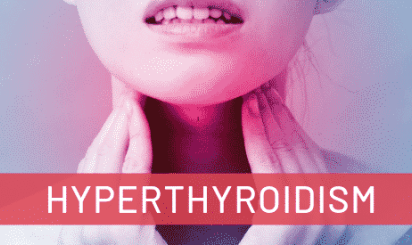Source: Thailand Medical News Jan 30, 2020 5 years, 10 months, 2 weeks, 3 days, 14 hours, 35 minutes ago
Following an evidence review led by University of Birmingham researchers, it is now advocated that
radioactive iodine be recommended as the frontline treatment for patients with
thyroid gland overactivity caused by conditions such as
Graves’ disease.

Typically,
hyperthyroidism is a condition in which the
thyroid gland produces excess amounts of
thyroid hormones. Affecting more than 3.8 million people in the world, it can lead to a range of symptoms including weight loss, nervousness, irritability, heat intolerance, heart racing, tremor and muscular weakness. The most common type of
hyperthyroidism is
Graves’ disease, a condition where the
body’s immune system mistakenly attacks the
thyroid gland, triggering over-production of
thyroid hormones.
Medical and endocrinology researchers from the University’s Institute of Applied Health Research have been working with the National Institute for Health and Care Excellence (NICE) to review the evidence on current treatment guidelines for the disease.
Existing conventional recommendations are to treat patients with
antithyroid drugs called
thionamides, and in the UK and Europe
radioactive iodine is often only given if they suffer a relapse after this treatment. This is due to safety concerns over potential adverse effects of radioactive iodine such as worsening eye disease, and development of secondary cancers.
The new research led by the Birmingham researchers has shown that
radioactive iodine is a safe treatment and results in improved cardiovascular outcomes for patients with
hyperthyroidism.
The team from the NICE independent guideline committee surveyed clinical and economic evidence to conclude that
radioactive iodine was the most effective treatment for the condition, curing 90 percent of cases. They also concluded there was no evidence of a clinically important increase in cancer diagnoses or deaths between people treated with
radioactive iodine and healthy controls.
Chairwoman Dr. Kristien Boelaert, who led the guideline committee, told
Thailand Medical News via a phone interview, “There has been uncertainty in the UK about the best treatment for
hyperthyroidism despite
radioactive iodine being the most common first-line treatment for this condition in the US. We are very pleased to have been able to work with NICE to provide clear new guidance which we hope will improve outcomes for patients with this condition.”
Individuals treated with radioactive iodine take a single tablet that contains iodine and a low dose of radiation, which is absorbed by the
thyroid.
After taking the treatment patients are advised to avoid prolonged close contact with children and pregnant women for a few days or weeks and avoid getting pregnant or fathering a child for several months. The treatment is likely to lead to an underactive
thyroid gland which will require ongoing treatment with
thyroid hormone tablets.
Reference: “Thyroid disease assessment and management: summary of NICE guidance” by Melina Vasileiou, James Gilbert, Sarah Fishburn and Kristien Boelaert, 29 January 2020, BMJ.
DOI: 10.1136/bmj.m41
